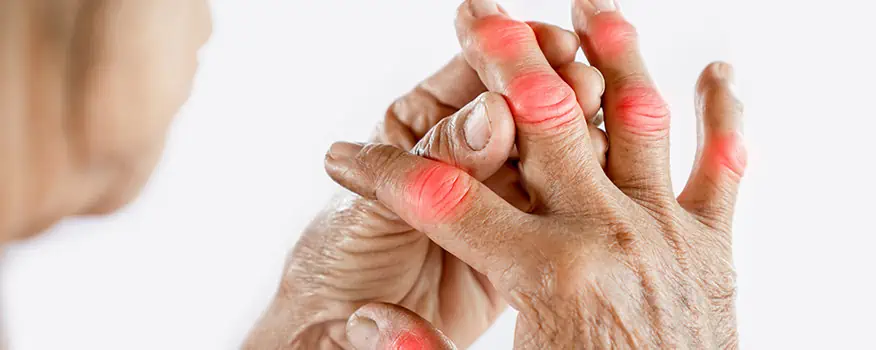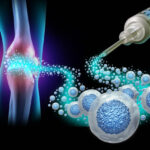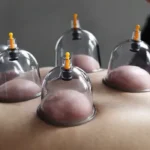Knee pain can be a persistent and debilitating issue that affects your mobility and quality of life. Whether caused by injuries, osteoarthritis, or overuse, finding effective non-surgical solutions is crucial for managing knee discomfort.
While traditional treatments such as medications and physical therapy have been the norm, regenerative medicine has emerged as a promising alternative.
TRADITIONAL TREATMENTS FOR KNEE PAIN
- Medications: Over-the-counter pain relievers and anti-inflammatory drugs are often prescribed to manage knee pain. While they can provide temporary relief, they may have potential side effects and do not address the underlying cause of the pain.
- Physical Therapy: Physical therapy involves exercises and stretches aimed at improving knee strength, flexibility, and range of motion. It can be effective for certain conditions but might require a prolonged commitment to see results.
- Corticosteroid Injections: Corticosteroid injections are used to reduce inflammation and pain in the knee joint. While they can provide short-term relief, repeated use may lead to diminished effectiveness and potential side effects.
- Hyaluronic Acid Injections: Hyaluronic acid injections are intended to lubricate and cushion the knee joint, offering relief for osteoarthritis-related pain. The effectiveness of these injections varies among individuals.
- Assistive Devices: Braces, crutches, and canes can provide support and alleviate pressure on the knee joint. They are often used as complementary measures to other treatments.
REGENERATIVE MEDICINE FOR KNEE PAIN
Regenerative medicine is a rapidly evolving field that focuses on harnessing the body’s natural healing abilities to promote tissue repair and regeneration. Two prominent regenerative treatments for knee pain are Platelet Rich Plasma (PRP) therapy and stem cell therapy.
Platelet Rich Plasma (PRP) Therapy: PRP therapy involves using the patient’s own blood to create a concentrated solution rich in growth factors and healing properties. This solution is injected into the knee joint to stimulate tissue repair and reduce inflammation.
Stem Cell Therapy: Stem cell therapy involves injecting stem cells, which have the potential to differentiate into various cell types, into the knee joint. These stem cells can promote tissue regeneration and help repair damaged cartilage and other structures.
COMPARING THE APPROACHES
- Addressing the Root Cause: While traditional treatments often focus on managing symptoms, regenerative medicine aims to address the underlying cause of knee pain by promoting tissue repair and regeneration.
- Longevity of Relief: Traditional treatments may provide temporary relief, requiring repeated interventions over time. Regenerative treatments have the potential to offer longer-lasting relief as they support the body’s natural healing processes.
- Non-Invasive Approach: Both regenerative medicine and traditional treatments are non-surgical options. However, regenerative treatments like PRP therapy and stem cell therapy involve minimally invasive injections, while corticosteroid injections might have similar application methods.
- Potential for Tissue Regeneration: Regenerative treatments have the unique advantage of potentially regenerating damaged tissue, which can contribute to improved joint function and overall quality of life.
- Customized Care: Regenerative treatments can be tailored to the individual, considering factors such as the severity of the condition and the patient’s overall health. This personalized approach enhances the effectiveness of the treatment.
- Minimal Side Effects: Regenerative treatments using the patient’s own cells (autologous) typically have minimal risk of adverse reactions, as they are derived from the patient’s body.
MAKING AN INFORMED DECISION
When considering non-surgical solutions for knee pain, it’s important to consult with healthcare professionals who specialize in regenerative medicine and orthopedics. They can assess your condition, review your medical history, and recommend the most appropriate treatment approach based on your individual needs and goals.
If you or a loved one are suffering from knee pain in Waldwick, JN call us today at (201) 445-1079 to schedule a free consultation.





